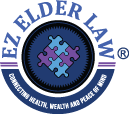Service animals used by individuals with a disability can only be excluded from public places if they cannot be controlled by their handler or if they are not house broken. See Title II, Section 35.136. Usually service animals must be harnessed, leashed or tethered unless the individual’s disability prevents using those devices or unless it […]
Blog
On July 26, 1990, President George H.W. Bush signed into law the Americans with Disabilities Act of 1990 (“ADA”), a comprehensive civil rights law prohibiting discrimination on the basis of disability. The law was amended on September 25, 2008, when President George W.Bush signed into law the Americans with Disabilities Amendments Act of 2008 (ADA […]
In City of Grants Pass, Oregon v. Johnson (U.S. 6/28/2024), the U.S. Supreme Court held that enforcement of generally applicable laws regulating camping on public property does not constitute “cruel and unusual punishment” prohibited by the Eighth Amendment. This decision followed the City of Grants Pass’ adoption of an ordinance restricting homeless individuals from camping […]
The Centers for Medicare and Medicaid Services launched the Guiding an Improved Dementia Experience (GUIDE) Model on July 1, 2024. It is a voluntary nationwide model test that aims to support people with dementia and their unpaid caregivers. The GUIDE Model is an attempt to provide Medicare funded comprehensive, coordinated dementia care to improve quality […]
Dementia affects more than 50 million people worldwide. The Virtual Dementia Tour is designed to allow participants to experience what dementia patients see, hear and feel so they better understand and empathize with individuals who have dementia. One website with the UNC Greensboro reports: “The simulation temporarily alters your physical and sensory abilities to replicate […]
On September 5, 2023, members of the American Medicaid Association published a study to answer the following question: Can eye-tracking–based measurement of social visual engagement aid in early diagnosis and assessment of autism in young children? The double-blind study examined 475 children assessed for autism. The study concluded that eye-tracking–based measurement of social visual engagement was […]
Aging and Cognitive Health Evaluation in Elders (ACHIEVE) is a landmark study of the effect of hearing intervention on brain health in older adults. Findings, recently published in Lancet, showed that hearing loss is associated with cognitive decline and one goal was to determine whether hearing intervention could reduce cognitive decline. ACHIEVE’s key findings showed […]

The FDA has approved Leqembi (Lecanemab) for patients with mild dementia and other symptoms caused by early Alzheimer’s disease. Approval followed a determination that a confirmatory trial verified clinical benefit. Leqembi is the first amyloid beta-directed antibody to be converted from an accelerated approval to a traditional approval for the treatment of Alzheimer’s disease. In […]

The following is a mishmash of information on various Elder Law, Special Needs Law, and Estate Planning issues. It also includes anything else we found interesting during the month of June, 2023. We will continue updating from time to time throughout the month. Last updated 6/8/2023. Keep in mind, you are using linked content at […]

There are many types of “Plaintiff’s cases.” This article focuses on injury cases. Injury cases can be as simple as a car wreck or as complex as a medical malpractice case. Regardless, they generally require four essential elements: duty, breach of duty, causation, and damages. See Calhoun First Nat’l Bank v. Dickens, 264 Ga. 285 […]

